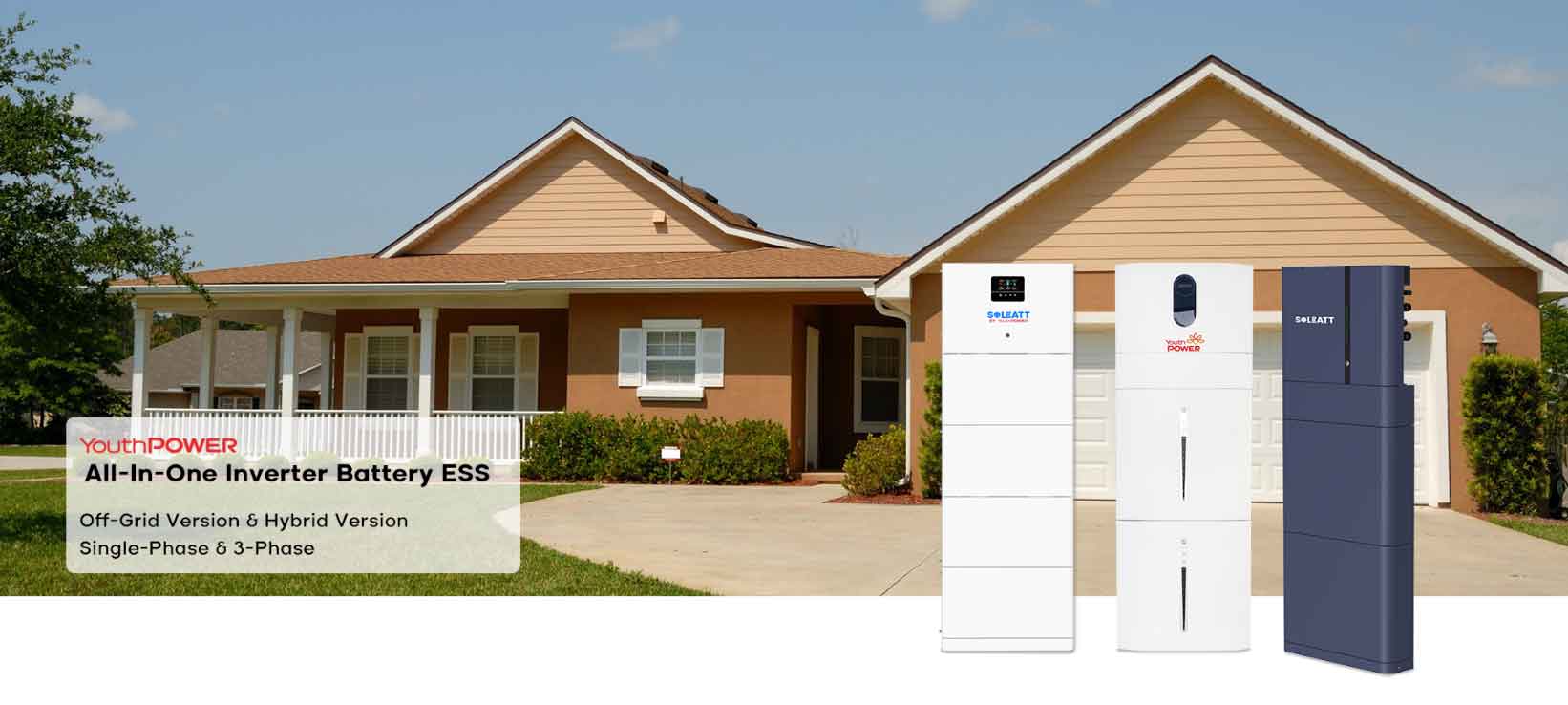When it comes to off-grid solar setups, lithium solar batteries are the gold standard for solar energy storage. However, a common concern among users is whether a solar power inverter will drain their solar lithium battery too quickly. In this article, we'll explore how inverters interact with lithium batteries for solar, the factors affecting battery drain, and tips for maximizing efficiency.
1. How Does a Solar Power Inverter Work?
The core of any solar power system is the solar inverter, a crucial component that converts direct current (DC) electricity from solar panels into alternating current (AC), which is suitable for powering homes or businesses.
A solar power inverter is responsible for converting DC power stored in your solar lithium ion battery into AC power, which is required by most household appliances. This conversion process is crucial for operating devices such as laptops, refrigerators, and even power tools when you are off-grid.
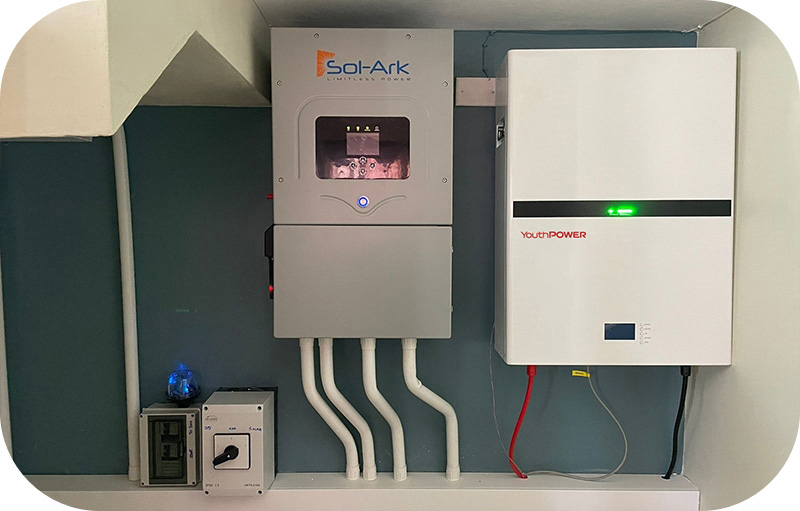
2. How Long Does a Solar Inverter Last Continuously?
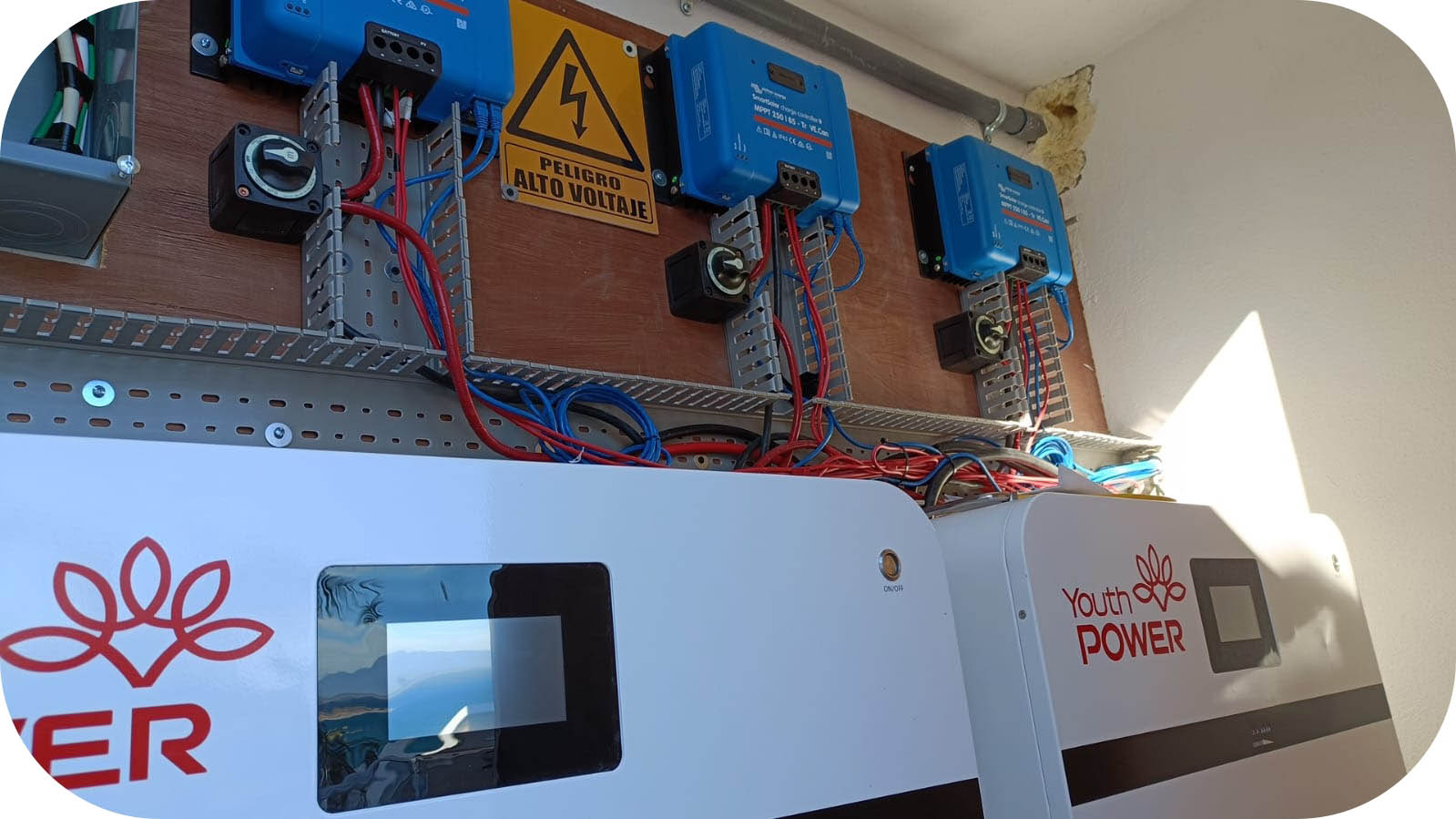
A solar inverter is used to convert the energy from solar panels into usable electricity without interruption. They are designed for long-term continuous operation, allowing you to keep them on at all times and utilize the solar system whenever needed.
In off-grid setups, as long as the solar panel battery for home has power, the inverter will remain operational; however, once the battery is fully discharged, the inverter will automatically shut down.
3. Will an Inverter Drain My Lithium ion Solar Battery?
No, solar inverters do not drain your lithium solar battery.
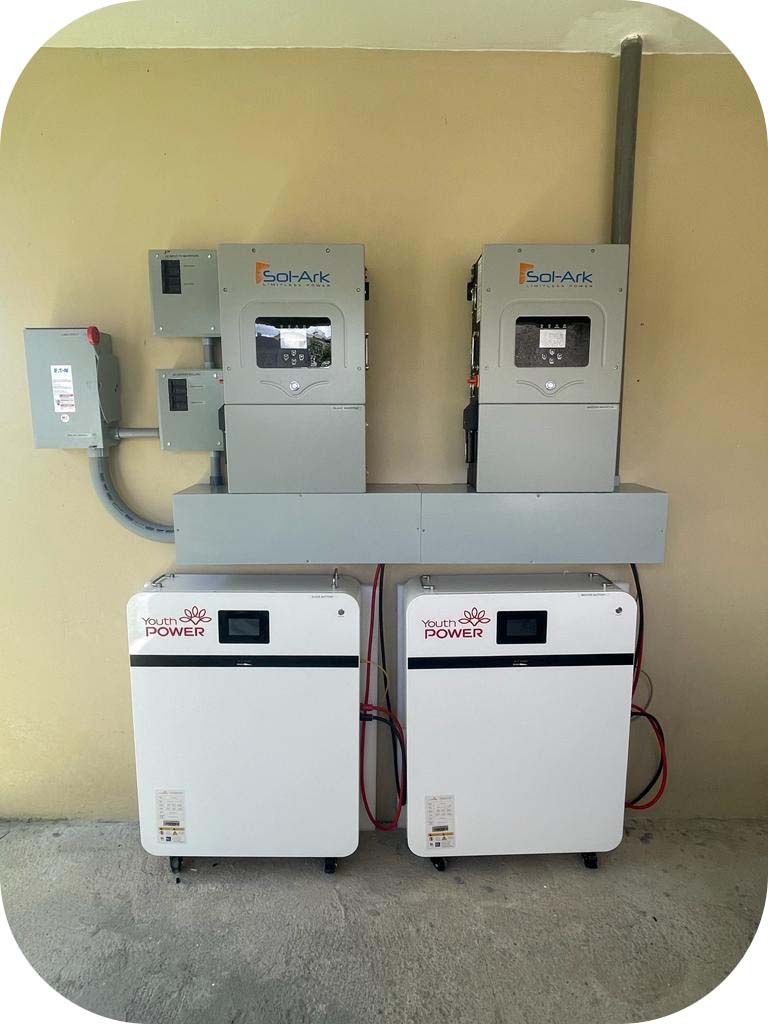
The inverter only requires a small amount of power to operate in standby and running modes, even during nighttime or when there is no load. This standby power consumption is typically very low, ranging from 1-5 watts.
However, over time, the lithium ion battery's overall capacity can gradually decrease, particularly if the battery has a low capacity or if the lighting conditions are poor. However, standby power consumption is not a major concern and there is no need for concern.
Although this standby power consumption may slightly impact the overall capacity of lithium batteries for solar panels over time, it should be noted that this effect is gradual and generally insignificant. The extent to which it affects battery capacity depends on various factors, such as the size of the battery's capacity and lighting conditions.
For instance, if you have a smaller lithium battery for solar with limited storage capacity or if your location experiences poor lighting conditions for extended periods, then the battery may experience a slight increase in drain due to the continuous operation of the inverter. However, modern solar battery backup for home are designed to withstand such minor drains without significant consequences.
It's important to note that while some level of standby power consumption exists, it does not pose any significant problems for most users. Solar inverters are designed with efficiency in mind and manufacturers continuously strive to minimize their energy usage during idling periods.
4. Why Lithium Solar Batteries Are Ideal for Inverters?
Lithium ion batteries for solar are the ideal choice for powering inverters due to their high energy density, long lifespan, and efficient energy delivery. Unlike lead-acid batteries, they can be discharged deeply (up to 80-90%) without significant damage, making them ideal for extended periods of use.
Whether you're setting up an off-grid system or adding battery storage to your existing solar array, investing in this combination ensures optimal performance and durability for a seamless energy solution that delivers clean and consistent power whenever needed.
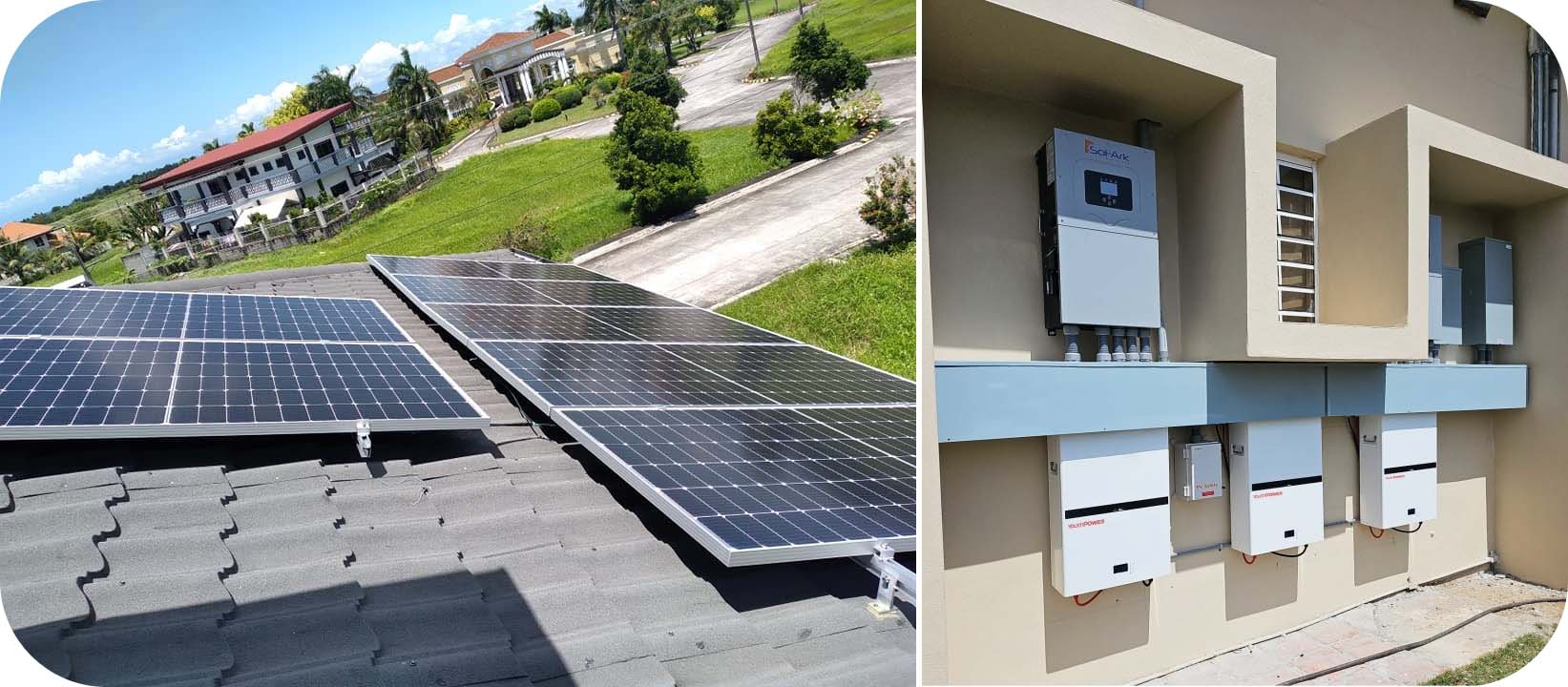
5. Tips to Maintain Lithium Ion Solar Batteries
Proper maintenance of solar lithium ion batteries is crucial to ensure optimal performance and longevity. Here are five key tips to help you keep your batteries in top condition:
|
Maintenance Tip |
Description |
| Avoid Overcharging and Deep Discharging |
Maintain charge levels between 20% and 80% to prevent battery degradation. |
| Regularly Monitor Battery Health |
Use a Battery Management System (BMS) to track voltage, temperature, and overall health. |
| Maintain Optimal Operating Temperatures |
Keep the battery within 0°C to 45°C to avoid performance issues due to extreme heat or cold. |
| Prevent Prolonged Inactivity |
Charge and discharge the battery every few months to prevent excessive self-discharge. |
| Ensure Proper Cleaning and Ventilation |
Regularly clean the battery area and ensure good ventilation to avoid overheating and short circuits. |
By following these simple maintenance tips, you can extend the lifespan of your solar lithium batteries and ensure consistent, reliable performance for your home energy system.
6. Conclusion
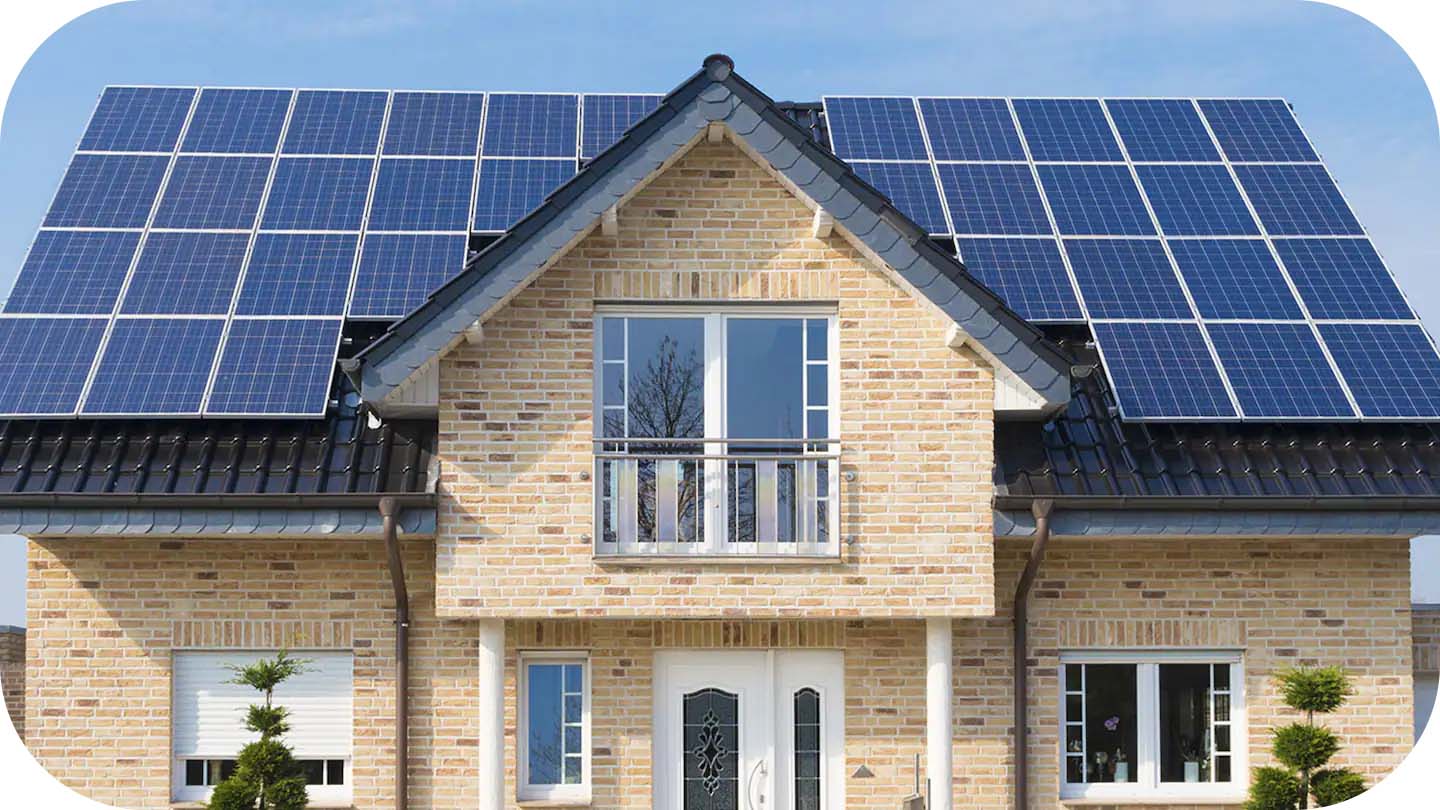
Due to the efficient conversion technology and comprehensive protection mechanism of solar inverters, there is no need to worry about whether a power inverter draining your lithium battery solar storage under normal use conditions.
Furthermore, by regularly and appropriately maintaining the whole solar battery backup system, including the lithium battery for solar system, inverter, and other solar equipment in our daily lives, we can not only maximize the efficiency of the solar inverter and lithium ion battery for solar panel but also reduce the overall operating cost of the system while providing sustainable and stable clean energy for our families.
7. Frequenty Asked Questions (FAQs)
① Which inverters are compatible with YouthPOWER LiFePO4 solar batteries?
- YouthPOWER LiFePO4 batteries for solar are compatible with most inverters available in the market. Please refer to the list of compatible inverter brands below.
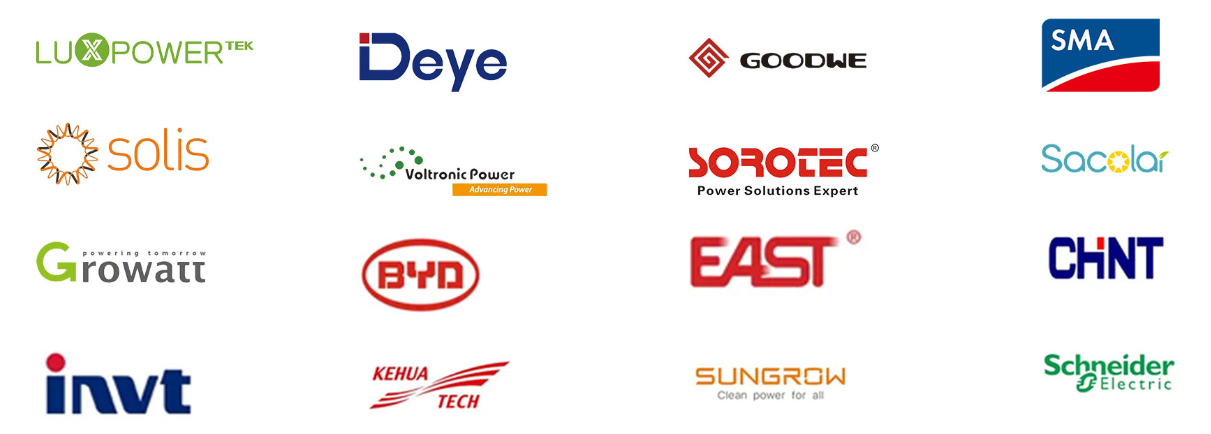
- In addition to the brands mentioned above, there are numerous other compatible inverter brands available. For further information, please feel free to consult our sales team at sales@youth-power.net.
② Should you keep the inverter on all the time?
- In general, it is recommended to keep the solar power inverter on to ensure normal operation of the solar battery storage system. Shutdowns frequently result in longer system restart times and impact efficiency. Most modern inverters have minimal standby power consumption, so leaving it on for extended periods has a negligible effect on electricity bills.
③ Will the solar inverter shut down at night?
- During the night when there is no sunlight and the solar panels stop producing direct current, most solar inverters automatically switch to standby mode instead of shutting down completely. In this low-power standby mode, the inverter maintains basic monitoring and communication functions with minimal power consumption, typically between 1-5 watts.
- Some modern solar power inverters have intelligent control functions that automatically switch to energy-saving mode at night, eliminating the need for manual operation.
④ Does YouthPOWER offer an all-in-one ESS with an inverter battery?
- Yes, below are some popular YouthPOWER Inverter Battery All In One ESS that are currently in high demand.
- 1) Hybrid Version
- Single Phase: YouthPOWER Power Tower Inverter Battery AIO ESS
- Three Phase: YouthPOWER 3-Phase HV Inverter Battery AIO ESS
- 2) Off Grid Version: YouthPOWER Off-grid Inverter Battery AIO ESS
